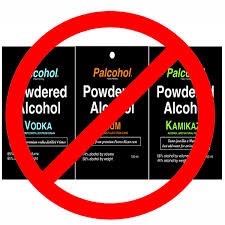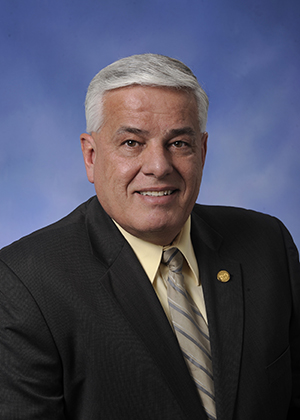Blog
Ban Powdered Alcohol update: SUCCESS!! EL TRIUNFO!!
- Details
- Created: Saturday, October 08 2016 17:29
 Thanks to your advocacy, California is now free from the public health and safety threats of powdered alcohol. On September 26, 2016, Governor Brown signed both AB 1554 (Irwin) and SB 819 (Huff) to prohibit the possession, purchase, sale, offer for sale, distribution, manufacture, or use of powdered alcohol in California and would make the violation of those provisions punishable with a fine.
Thanks to your advocacy, California is now free from the public health and safety threats of powdered alcohol. On September 26, 2016, Governor Brown signed both AB 1554 (Irwin) and SB 819 (Huff) to prohibit the possession, purchase, sale, offer for sale, distribution, manufacture, or use of powdered alcohol in California and would make the violation of those provisions punishable with a fine.
With his signatures California became the 34th state to ban the products because there is no good reason to allow another dangerous alcohol product to be sold, especially one that will be so easily abused by underage drinkers.
Thank you for joining with Alcohol Justice, the California Alcohol Policy Alliance, the Health Officers Association of California, California Craft Brewers Association, 48 other organizations, and many, many individuals in encouraging the legislature to pass these bills, and the Governor to sign them.

 Please make a contribution to Alcohol Justice today to help us continue to promote evidence-based public health policies and organize campaigns with diverse communities and youth against the alcohol industry's harmful practices.
Please make a contribution to Alcohol Justice today to help us continue to promote evidence-based public health policies and organize campaigns with diverse communities and youth against the alcohol industry's harmful practices.
Michigan Representative Fights for Charge for Harm Tax
- Details
- Created: Tuesday, September 20 2016 17:58
 A Michigan lawmaker’s efforts to raise the beer excise tax face stiff resistance in the state legislature, according to the Detroit News. State Representative Tom Hooker (R-Byron Center) introduced a bill that would increase the tax nearly 250%, generating an estimated $60 million per year. As a textbook Charge for Harm initiative, the funds would go to the state Department of Health and Human Services to support treatment efforts, as well as programs meant to address alcohol-related harm, prevention, and enforcement.
A Michigan lawmaker’s efforts to raise the beer excise tax face stiff resistance in the state legislature, according to the Detroit News. State Representative Tom Hooker (R-Byron Center) introduced a bill that would increase the tax nearly 250%, generating an estimated $60 million per year. As a textbook Charge for Harm initiative, the funds would go to the state Department of Health and Human Services to support treatment efforts, as well as programs meant to address alcohol-related harm, prevention, and enforcement.
“If you’re going to use [alcohol], the problems that you cause are going to be paid for, and the same with the producers,” Rep. Hooker told the Detroit News. “They’re producing a poison that’s causing problems to our systems, to our society, and they should have to pay for it.” According to the Michigan Department of Community Health, excess alcohol consumption could cost the state $8.2 billion in lost productivity, health care, and other costs, including alcohol-related motor vehicle crashes. The Department explicitly recommends increasing alcohol excise taxes as a means to control alcohol consumption-related costs.
The proposed tax increase, the state's first since 1966, would leave Michigan with the eighth highest excise tax in the country. The Center for Alcohol Policy notes that the state has the fifth largest number of breweries nationwide, and the most east of the Rockies.
Hooker’s bill faces opposition from a rapidly growing local brewing industry, with lobbyists warning that competition from bordering states could put local liquor stores at a disadvantage. Talking to the Detroit News, the Michigan Chamber of Commerce also opposed the measure, identifying the craft brewing industry as a “significant economic driver for the state.”
The legislation is currently with the House Regulatory Reform committee but is expected to stall there, with Chairman Ray Franz (R-Onekama) saying, “I really don’t think there’s going to be time” to bring it up to the chamber.
Still, Hooker remained adamant about the importance of his bill. “I struggle with expansion of alcohol and recognize that it does damage our families and does damage our systems,” he told the Detroit News. “Not everyone who drinks is going to be an abuser, but those costs have to be borne somewhere.”
FURTHER READING: Alcohol Justice page on Charge for Harm.

Breaking the Toxic Stalemate in Whiteclay! (UPDATED) - 9/16/16
- Details
- Created: Friday, September 16 2016 15:56
Efforts Underway to Declare Alcohol Sales a Public Health Disaster

by Michael Scippa
Whiteclay, a Nebraska township of a dozen residents located near the border of South Dakota and the Pine Ridge Reservation, is home to 4 liquor stores that annually sell more than 4 million cans of high alcohol content beer and malt liquor to residents of the reservation who easily make the short walk across the state line. Alcohol sales and consumption have long been banned on the reservation, for good reason.
Generations of Lakota and Oglala Sioux tribal elders have protested against the culturally exploitative liquor stores. For the residents of Pine Ridge, one of the most economically disadvantaged communities in the U.S., 1 out of 4 children are born with Fetal Alcohol Spectrum Disorder, and 2/3 of the adult population are alcoholics. Yet ongoing petitions and presentations by Native American organizers and their supporters before the Nebraska Liquor Control Commission that seek to close these liquor outlets are stymied by the state laws making it legal to buy and sell alcohol within the state, and pressure from Big Alcohol to keep the profits rolling in.
Nebraska State Senator Patty Pansing Brooks is trying to break the impasse by declaring Whiteclay a public health disaster. Her June visit to the Nebraska township garnered television coverage, press attention in the Omaha World Herald, and even international press attention from the BBC and The Guardian.
Senator Brooks' next steps, as she prepares for a legislative interim study on Whiteclay's alcohol sales, will be to lead a group of Nebraska Senators, agency leaders, University of Nebraska Medical Center representatives and local activists on a high-level fact finding tour of Whiteclay and Pine Ridge September 27-28, 2016. She will then convene a formal public hearing at the Nebraska State Capital in Lincoln on October 11, 2016, to discuss findings and a multi-faceted approach to solving the core problems caused by the broken township of Whiteclay.
Sonny Skyhawk, actor, producer, activist, Alcohol Justice Board Member, and a proud citizen of the Rosebud Sioux Tribal Nation is among the speakers the senator has invited to testify at the hearing. There will also be 90 minutes of open testimony for anyone so moved to attend and wait for a turn at the microphone.
During her June visit, the Senator said, "In my entire life, I have never seen the depth of poverty, degradation, and inhumane treatment of a people as I saw in our beloved Nebraska at Whiteclay."
As news cameras accompanied the senator's visit, they captured visual evidence of soiled mattresses and shantytowns behind the liquor stores, public inebriation, prostitution and sex trafficking.
On her Facebook page, Senator Brooks wrote that she was especially dismayed to see baby shoes lying amidst the debris where people with alcohol addiction sleep. "We have a problem in Nebraska," she wrote. "We're obviously avoiding it and not dealing with it."
By declaring Whiteclay a health emergency, Senator Brooks seeks to add a state patrol substation within the township. Currently, it takes between 20 minutes and four hours for officials to respond to any 911 calls. She also hopes to tax the lucrative revenue stream of alcohol sales in Whiteclay to fund a health clinic (also known as "charge for harm"), tear down condemned and abandoned buildings (a tactic that other communities have used successfully to fight back against the "crack" cocaine epidemic), and bring broadband and other tools of economic development into the community.
Tribal residents are cautiously optimistic that real change may be on the horizon. It is urgent to keep the spotlight on this issue and break the toxic impasse of inaction.
This summer, more than 126 supporters of Alcohol Justice sent 635 messages demanding far-reaching change to:
- Pete Ricketts, Governor of Nebraska
- Robert Batt, Chairman, Nebraska Liquor Control Commission
- Mike Foley, Lt. Governor of Nebraska
- Judi M. Gaiashkibos, Executive Director, Nebraska Commission on Indian Affairs
- Courtney Dentlinger, Director, Nebraska Department of Economic Development
Update: Pine Ridge activist Olowan Martinez, charged during the 2013 Women's Day of Peace rally in Whiteclay, made her initial court appearance in Sheridan County Court, NE. Martinez was arrested September 13th on a criminal trespass charge during a nonviolent action to block the Dakota Acccess pipeline, and extradited to Nebraska. She has since been released on a $10,000 bond. More details here.
Now is the time to continue to pressure Nebraska officials! Make your voice heard -- TAKE ACTION to send your message of encouragement and support.

More Articles ...
Subcategories
Help us hold Big Alcohol accountable for the harm its products cause.
| GET ACTION ALERTS AND eNEWS |
STAY CONNECTED    |
CONTACT US 24 Belvedere St. San Rafael, CA 94901 415-456-5692 |
SUPPORT US Terms of Service & Privacy Policy |


